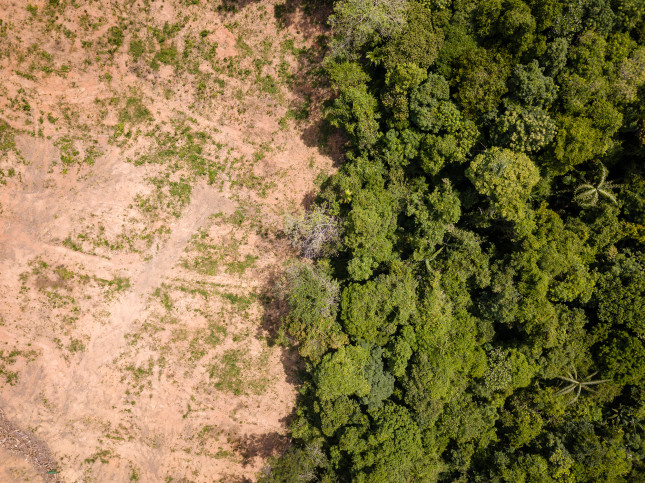Showing posts by Shannon O’Lear.
-
How Environmental Geopolitics Expands Our Understanding of Risk and Security
›
The coronavirus has everyone weighing risk and security within a sliding scale of geographic connections and boundaries. Dots and circles of infection pack our virus maps. We more clearly see the fragility of commodity chains that structure our food systems and energy supplies. The virus easily crosses state borders while security protocols within states have been focused on boundaries between individuals and speech droplets. In many ways, human interaction with this microbe illustrates why an environmental geopolitics perspective is powerful.
-
Shannon O’Lear, University of Kansas
Book Preview: ‘Environmental Politics: Scale and Power’
›February 1, 2011 // By Shannon O’LearThe cover of my book, Environmental Politics: Scale and Power, shows two cows casually rummaging through piles of garbage on the streets of a city somewhere in India. It’s a colorful, but disturbing, image. Why not show cows in their “natural” setting, say, in a Kansas pasture? Who let them into the street? Why are they eating garbage? The image is symbolic of what the book aims to achieve: to get us out of our comfort zones in thinking about environmental issues and challenge us to reconsider how we think about issues like climate change, energy, food security, garbage, toxins, and resource conflicts.
The book draws from my experience teaching environmental policy, environmental geopolitics, international conflict, and human geography. It starts by asking some fundamental questions: What exactly is “the environment” anyway? Is there any part of the world that is completely untouched by human actions? How do different forms of power selectively shape our understanding of particular environmental issues (while obscuring other issues from our view)?
The book draws on the idea of the “Anthropocene” – a new geologic era characterized by irreversible, human-induced changes to the planet. Because these changes (which in large part have already occurred) are irreversible, Anthropocene-subscribers argue we should focus our efforts on mitigation, adaptation, and coming to terms with the realities of the environment as it is, rather than something that must be returned to some previous or “normal” state.
Our understanding of environmental issues is shaped by various types of power – economic, political, ideological, and military – and therefore tends to be limited in terms of spatial scale. Why do we tend to think of climate change as a global phenomenon instead of something we might experience (and contend with) locally? Is food security something we should be mindful of when we make individual choices about food? We tend not to discuss what happens to our garbage, but everyone knows about recycling, right?
Environmental Politics: Scale and Power offers non-geographers an appreciation of how and why geographers think spatially to solve problems. Commonly accepted views of environmental issues tend to get trapped at particular spatial scales, creating a few dominant narratives. When we combine a spatial perspective with an inquiry into the dynamics of power that have influenced our understanding of environmental issues, we can more clearly appreciate the complexity of human-environment relations and come to terms with adapting to and living in the Anthropocene era.
Today’s environmental challenges can sometimes appear distant and immense, but this book aims to show how decisions we make in our day-to-day lives – from buying bottled water and microwave popcorn to diamond jewelry – have already had an effect on a grand scale.
Shannon O’Lear is a professor of geography at the University of Kansas and the author of Environmental Politics: Scale and Power. She has recently completed a research project examining why we do not see widespread or sustained environmental resource-related conflict in Azerbaijan, as literature on resource conflict would suggest.
Image Credit: Environmental Politics: Scale and Power, courtesy of Justin Riley and Cambridge University Press.





